“The white coat serves as the uniform of our noble profession but, far more importantly, it is a symbol of a commitment to humanism and to the care of the patient.”
News Briefs
Notable
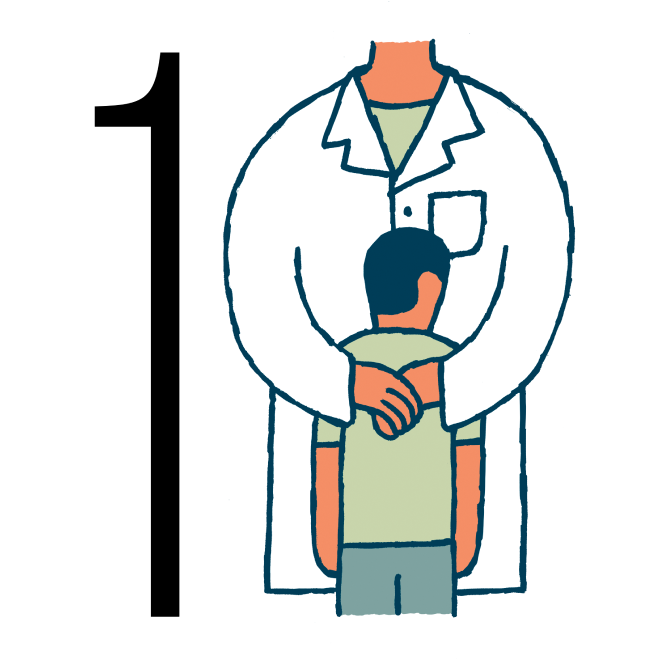
Dr. Yoon Kang, senior associate dean for education, the Richard P. Cohen, M.D. Professor of Medical Education and a professor of medicine, speaking at the annual White Coat Ceremony held in August, which marked the beginning of the medical education journey for members of Weill Cornell Medical College’s Class of 2027. In addition to their new coats, students received stethoscopes provided by the Moss Family Foundation and the Paul F. Miskovitz, M.D. ’75 Stethoscope Fund for Medical Students.
The Class of 2027 adds to Weill Cornell Medicine’s rich and diverse community. Its students have lived, studied and worked in more than 15 different countries and 40% of the class is bilingual or multilingual. Women comprise 46% of the class, and 26% are first-generation college students. Collectively, the incoming class attended 52 different undergraduate colleges across 23 states, with 11 alumni of Cornell University.
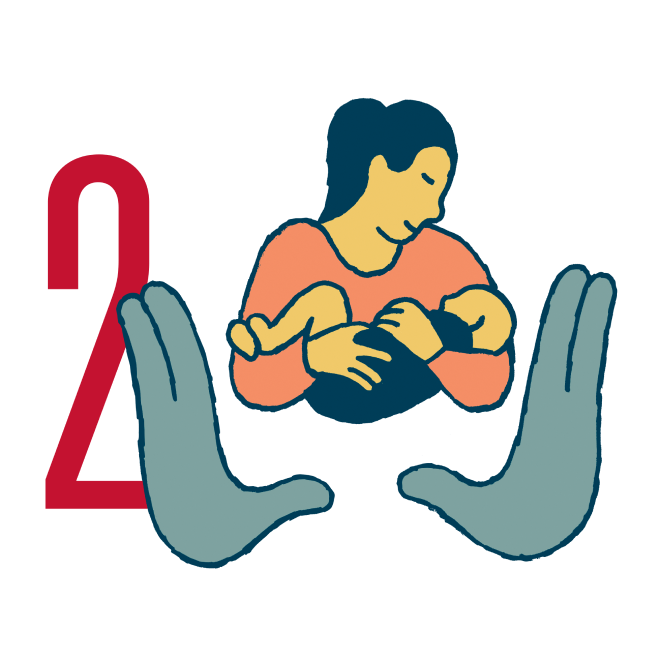
Improving Maternal Health and Pregnancy Outcomes
As part of an NIH initiative to improve maternal health and pregnancy outcomes nationwide, Weill Cornell Medicine and NewYork-Presbyterian will play a pivotal role as collaborators with Columbia University Irving Medical Center as one of 10 nationwide IMPROVE (Implementing a Maternal Health and Pregnancy Outcomes Vision for Everyone) Maternal Health Research Centers of Excellence.
The research center, called the NY Community-Hospital-Academic Maternal Health Equity Partnerships, will develop and evaluate innovative approaches to reduce pregnancy-related complications and deaths in underserved communities in New York City. The center received $2.3 million in first-year funding, and is the only research center in the Northeast to achieve this distinction.

Combating Cancer Disparities
Weill Cornell Medicine and Columbia University have been awarded a $9.8 million, five-year grant from the National Cancer Institute (NCI) to help combat cancer disparities fueled by persistent poverty.
The competitive award will engage faculty members from Weill Cornell Medicine, Columbia University Mailman School of Public Health, Columbia University School of Nursing and SUNY Downstate Health Sciences University in a collaborative effort to develop a specialized research center and spearhead two large projects in four communities of persistent poverty in New York City.
“We were one of only five centers the NCI funded, and the only one in New York City and the Northeast, so we’re really delighted,” says lead principal investigator Dr. Rulla Tamimi, chief of epidemiology and interim chief of biostatistics in the Department of Population Health Sciences, associate director of population science at the Sandra and Edward Meyer Cancer Center, and a professor of population health sciences and of epidemiology in pathology and laboratory medicine. “The NCI wanted to fund centers that came up with novel, creative, innovative ways to close health equity gaps. While we’re not able to eliminate persistent poverty, we can mitigate some of its influences on cancer.”
“We are incredibly proud of this designation and want patients to know we provide comprehensive health care here for any rare disease.”

Dr. Omar Abdul-Rahman, chief of the Division of Medical Genetics in the Department of Pediatrics at Weill Cornell Medicine and NewYork-Presbyterian Komansky Children’s Hospital, who steered the rigorous application process that resulted in Weill Cornell Medicine and NewYork-Presbyterian/Weill Cornell Medical Center together being named a Rare Disease Center of Excellence by the National Organization for Rare Disorders (NORD).
The designation adds the academic medical center to NORD’s collaborative network of 40 participating institutions that study and treat rare diseases.
Some 85% of rare diseases are genetic conditions, said Dr. Abdul-Rahman. There are 20,000 genes that comprise the human genome and scientists understand approximately 7,000 of them. “So, there is still the potential to discover new rare diseases caused by the remaining 13,000 genes,” said Dr. Abdul-Rahman, who is also director of clinical genetics in the Englander Institute for Precision Medicine at Weill Cornell Medicine.

National Honors
American Society for Clinical Investigation
Dr. James C. Lo, an associate professor of medicine, and Dr. Lisa G. Roth, an associate professor of pediatrics, of pediatrics in medicine, and of pathology and laboratory medicine, were elected members of the American Society for Clinical Investigation (ASCI) for 2023. Dr. Roth’s clinical research focuses on lymphomas, cancers of the immune system, in children and young adults. Dr. Lo’s clinical research encompasses the intersection between cardiovascular and metabolic diseases, including heart attack, heart rhythm disorders and diabetes.
Association of American Physicians
Dr. Kyu Rhee, a professor of medicine in the Division of Infectious Diseases and a professor of microbiology and immunology, has been elected to the Association of American Physicians. Dr. Rhee was recognized for his pioneering work in developing new tools to study the biochemistry of tuberculosis, the leading cause of death from bacterial infection worldwide.
American Academy of Arts and Sciences
Dr. Tobias Meyer, the Joseph C. Hinsey Professor in Cell & Developmental Biology, has been elected to the American Academy of Arts and Sciences, one of the nation’s oldest honorary societies. Recent work by Dr. Meyer, who is also a professor of cell and developmental biology and of biochemistry, investigates how cells integrate information they receive from receptors and stress conditions to understand how human cells move and divide to build, maintain and repair tissues and organs.
National Academy of Medicine
Dr. Lisa Newman, chief of the section of breast surgery at Weill Cornell Medicine and NewYork-Presbyterian/Weill Cornell Medical Center, and Dr. Jedd D. Wolchok, the Meyer Director of the Sandra and Edward Meyer Cancer Center at Weill Cornell Medicine, in partnership with NewYork-Presbyterian, have been elected to the National Academy of Medicine. One of the most prestigious honors in health and medicine, the academy recognizes individuals who have demonstrated outstanding professional achievement and commitment to service.

Funding Awards
Taking Risks in Cancer Research
Dr. David Simon, the Fernholz Foundation Research Scholar in Neuroscience and an assistant professor of biochemistry, was awarded the 2023 Pershing Square Sohn Prize for Young Investigators in Cancer Research.
The prize is given annually by the Pershing Square Sohn Cancer Research Alliance to at least six early-career scientists based in the New York City area who are pursuing innovative cancer research and taking risks that might preclude them from traditional funding. Dr. Simon’s lab studies the long, cable-like fibers called axons that project from nerve cells and connect to other cells of the nervous system, and the mechanisms that control their survival.
“I’m not a traditional cancer biologist. I think this award is an essential bridge for people like me. I don’t think I could pursue this project and answer the questions that I’m deeply interested in answering without this sort of commitment,” says Dr. Simon.
Inaugural MIND Prize
Dr. Matthew Greenblatt, an associate professor of pathology and laboratory medicine, has been awarded the Pershing Square Foundation’s Maximizing Innovation in Neuroscience Discovery (MIND) Prize to support his work studying how bone cells may influence Alzheimer’s disease progression.
2023 Tri-Institutional Breakout Award
Dr. Shawon Debnath, a research associate in pathology and laboratory medicine at Weill Cornell Medicine, has been honored with a 2023 Tri-Institutional Breakout Award for Junior Investigators. Weill Cornell Medicine, Memorial Sloan Kettering Cancer Center and The Rockefeller University jointly present the awards annually to up to six exceptional investigators — at least one from each institution. Dr. Debnath’s research in the lab of Dr. Matthew Greenblatt (see item above) focuses on bone biology, specifically skeletal stem cells.
Illustrations: Miguel Porlan
Fall 2023 Front to Back
-
From the Dean
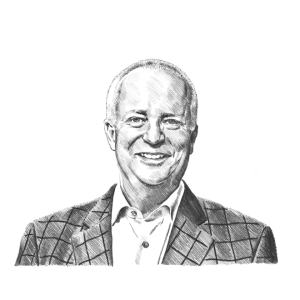
Message from the Dean
New Dean Robert A. Harrington, M.D. reflects on Weill Cornell Medicine’s tripartite mission — to care, to discover and teach — and ways to deepen and advance these goals. -
Features

Cancer Vaccines’ Promise
Patients are closer than ever to benefiting from a new treatment approach, thanks to strides in immunotherapy and COVID-19 vaccine technology.
-
Features

Silent Partners
How the brain’s less celebrated cells may drive Alzheimer’s disease and other dementias. -
Features
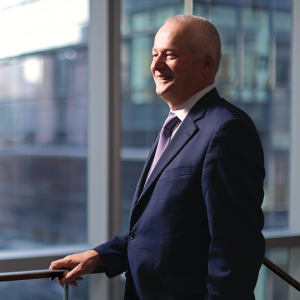
Future Forward
Dean Robert A. Harrington, M.D., shares his vision for Weill Cornell Medicine in a wide-ranging Q&A.
-
Notable

A New Residence for Graduate and Medical Students
A modern new residence on the Upper East Side campus will enhance the student experience. -
Notable

Dateline
Dr. Jyoti Mathad’s research could transform maternal health in under-resourced countries. -
Notable

Overheard
Weill Cornell Medicine faculty members are leading the conversation about important health issues across the country and around the world. -
Notable

News Briefs
Notable faculty appointments, honors, awards and more — from around campus and beyond. -
Grand Rounds

Playing With Heart
A transplant serves up a new beginning. -
Grand Rounds
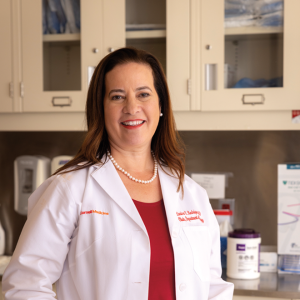
An End to Suffering in Silence
Weill Cornell Medicine’s Center for Female Pelvic Health is committed to treating women with dignity. -
Grand Rounds
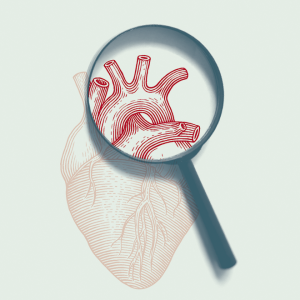
News Briefs
The latest on teaching, learning and patient-centered care. -
Grand Rounds

3 Questions
During the COVID-19 pandemic, Weill Cornell Medicine adapted medical education. It wasn’t the first time the institution responded to historic public health events. -
Discovery
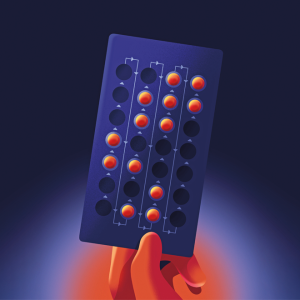
Making a Male “Pill”
A new “on-demand” method in development could offer men another choice for contraception. -
Discovery
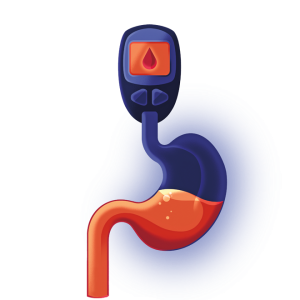
Scientists Target Human Stomach Cells for Diabetes Therapy
Stem cells from the human stomach offer a promising approach to treating diabetes.
-
Discovery
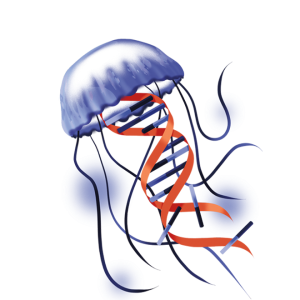
Findings
The latest advances in faculty research, published in the world’s leading journals. -
Discovery

3 Questions
Dr. Gunisha Kaur and the team at the Weill Cornell Medicine Human Rights Impact Lab are finding ways to improve refugee health. -
Alumni
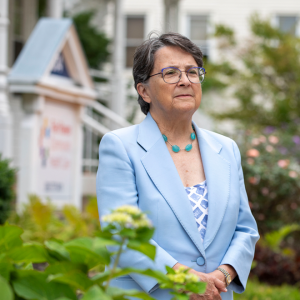
Profiles
From serving vulnerable communities to forging critical connections to move research from the bench to the bedside, our alumni are making an impact. -
Alumni
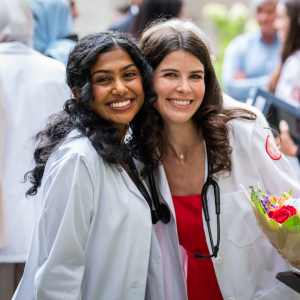
Notes
What’s new with you? Keep your classmates up to date on all your latest achievements with an Alumni Note. -
Alumni

In Memoriam
Marking the passing of our faculty and alumni. -
Alumni

Moments
Marking celebratory events in the lives of our students, including the White Coat Ceremony and receptions for new students. -
Second Opinion

AI in RX
How can chatbots be used in medicine? -
Exchange
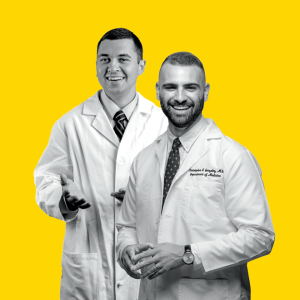
Diversifying Medicine
Two physicians discuss the unique experiences of Latino men in medicine and the crucial need for diversity. -
Muse
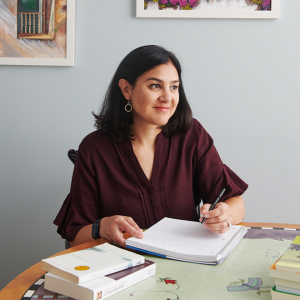
Writing to Make Meaning
Dr. Rachel Kowalsky is a pediatric emergency physician and an award-winning author. -
Spotlight
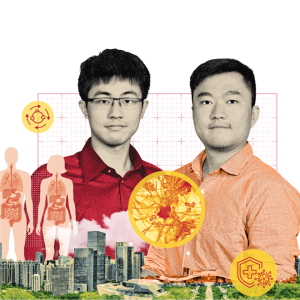
At the Forefront of Immunometabolism
Dr. Ke “Dave” Xu (Ph.D. ’21) and Dr. Anjin Xianyu (Ph.D. ’20), the founders of META Pharmaceuticals, are developing treatments for autoimmune diseases.